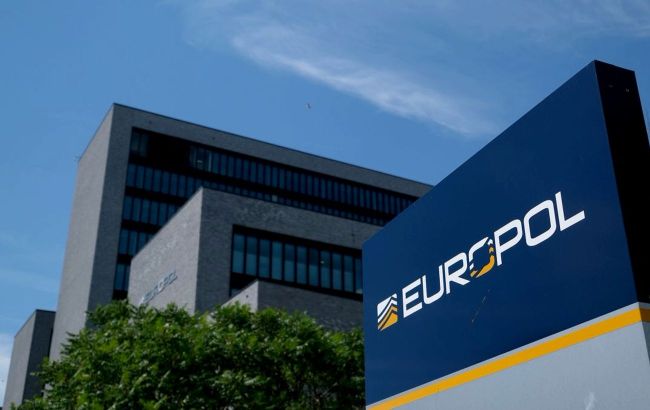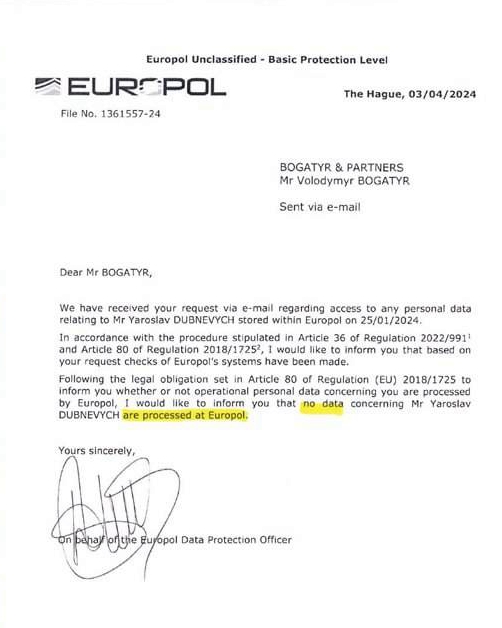Europol refutes Ukrainian prosecutors' claims in Dubnevych's case: Document
 Photo: Europol refuted the claims of Ukrainian prosecutors in Dubnevych's case (Getty Images)
Photo: Europol refuted the claims of Ukrainian prosecutors in Dubnevych's case (Getty Images)
The information about Yaroslav Dubnevych crossing borders, which the Specialized Anti-Corruption Prosecutor's Office (SAP) used last fall as grounds to put the Member of Parliament (MP) on the international wanted list, has turned out to be unreliable, according to the results of checks by the European Police Office (Europol) systems provided upon request by lawyer Volodymyr Bogatyr.
As it's known, the High Anti-Corruption Court is considering several charges against the MP.
During one of the hearings, the prosecutor filed a motion for his international search.
At the same time, the SAP representative reported that Dubnevych was abroad.
The evidence presented allegedly came from the Secure Information Exchange Network Application (SIENA - official information exchange channel of Europol) regarding Dubnevych's border crossing between Romania and Hungary. His whereabouts after that were unknown to the prosecution.
However, the defense contested this, stating that the defendant was undergoing medical treatment. Dubnevych previously stated via a video call that he was in a hospital in Ukraine.
The High Anti-Corruption Court satisfied the prosecutor's motion and declared the accused wanted internationally.
Notably, the State Border Guard Service did not record Dubnevych crossing the state border.
Data received from Europol cast doubt on the reliability of the information provided by the prosecution to the court. In a letter dated April 3, 2024, No. 1361557-24, the headquarters of the European Police Office in The Hague stated: "No data concerning Mr. Yaroslav Dubnevych are processed at Europol."

The Verkhovna Rada (Ukrainian Parliament) ratified the Agreement between Ukraine and the European Police Office on Operational and Strategic Cooperation in July 2017. Since then, Ukrainian law enforcement agencies have had access to the Secure Information Exchange Network Application (SIENA) of Europol.
"Despite SIENA remaining the best European communication channel for law enforcement agencies, unfortunately, there are cases of abuse of this data exchange system, which, among other things, is confidential. And the political criminal prosecution of Dubnevych is confirmation of this," says Bogatyr.
The lawyer is convinced that most of the "high-profile" criminal cases are aimed at creating negative public opinion about political opponents to exert political pressure on them.
Bogatyr also assesses the actions of Ukrainian law enforcement agencies related to the use of information from the SIENA in the case against the MP as having signs of unlawful disclosure of personal and pre-trial investigation data.
In his opinion, EU legislation is being violated, including Articles 7 and 8 of the European Convention on Human Rights, the General Data Protection Regulation, and Article 30 of the Europol Regulation, which prohibits the processing of personal data by automated or other means in cases of persecution on political, religious, ethnic, racial motives, etc.
"Considering the official information received from Europol, we record yet another case of abuse by the Ukrainian law enforcement system. By hiding behind European institutions, a pretext was artificially created for declaring a person wanted and unjustifiably changing the preventive measure. Regrettably, the activities of Europol are directly related and subservient to compliance with the European Convention, which is supposed to be a safeguard against arbitrariness," summarized the lawyer.

